Nadine Brown, The Ivy Institute, AU.
Nadine Brown started in horticulture before turning her attention to floristry. She had her own shop by 23 and spent over 17 years as a floristry teacher. Nadine’s most recent business venture, The Ivy Institute, sees her teaching skills delivered on a digital platform, with a focus on sustainable floral design, business mentoring and coaching.
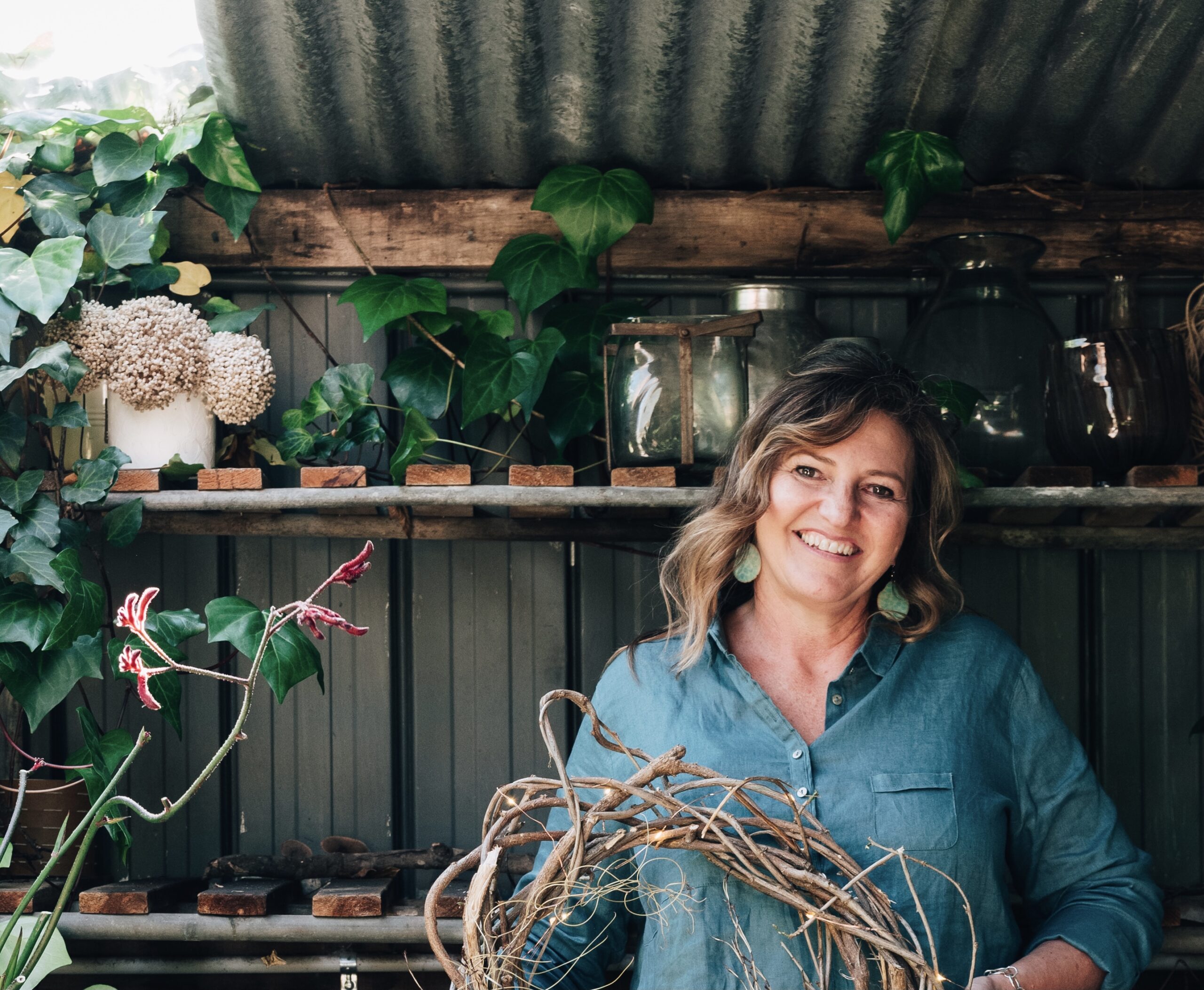
How did it start for you?
My nature-led career started at 15 when I left school to work at a garden centre. A few years later I volunteered at a lovely local flower shop. I became hooked by the busy, beautiful mess of it all and was soon employed there.
My formal learning education began at TAFE [TAFE is the Australian trade school]. In 1993, at the age of 23 and with four years’ experience working in floral retail shops, I opened my own shop in our local town of Picton. In Wildflower I created my dream flower shop, almost solely selling Australian and specifically South Australian wildflowers, with a very botanical feel. Ten years on, I had a larger space, four staff, 60+ weddings a year, two children, a farm and I’d begun teaching.
I knew it was time to sell the shop, so I set up a home based studio for all of my wedding and events. I created a large (expensive) website and new business model under Nadine Floral Design.
For the next 17 years I juggled this home-based business with being a mum and a part-time floristry teacher at TAFE.
In 2018 it was time for a change and Wild Flora Studio was born. I knew I wanted to continue as an educator but in a way that was flexible and had a strong sustainable floristry focus. I could also see a gap in our industry for mentoring and support. I felt it was time for me to share and give back through coaching and mentoring sessions and programs. This business is heart-led, and is continually evolving into something I’m really proud of. In 2022 I re-branded to The Ivy Institute
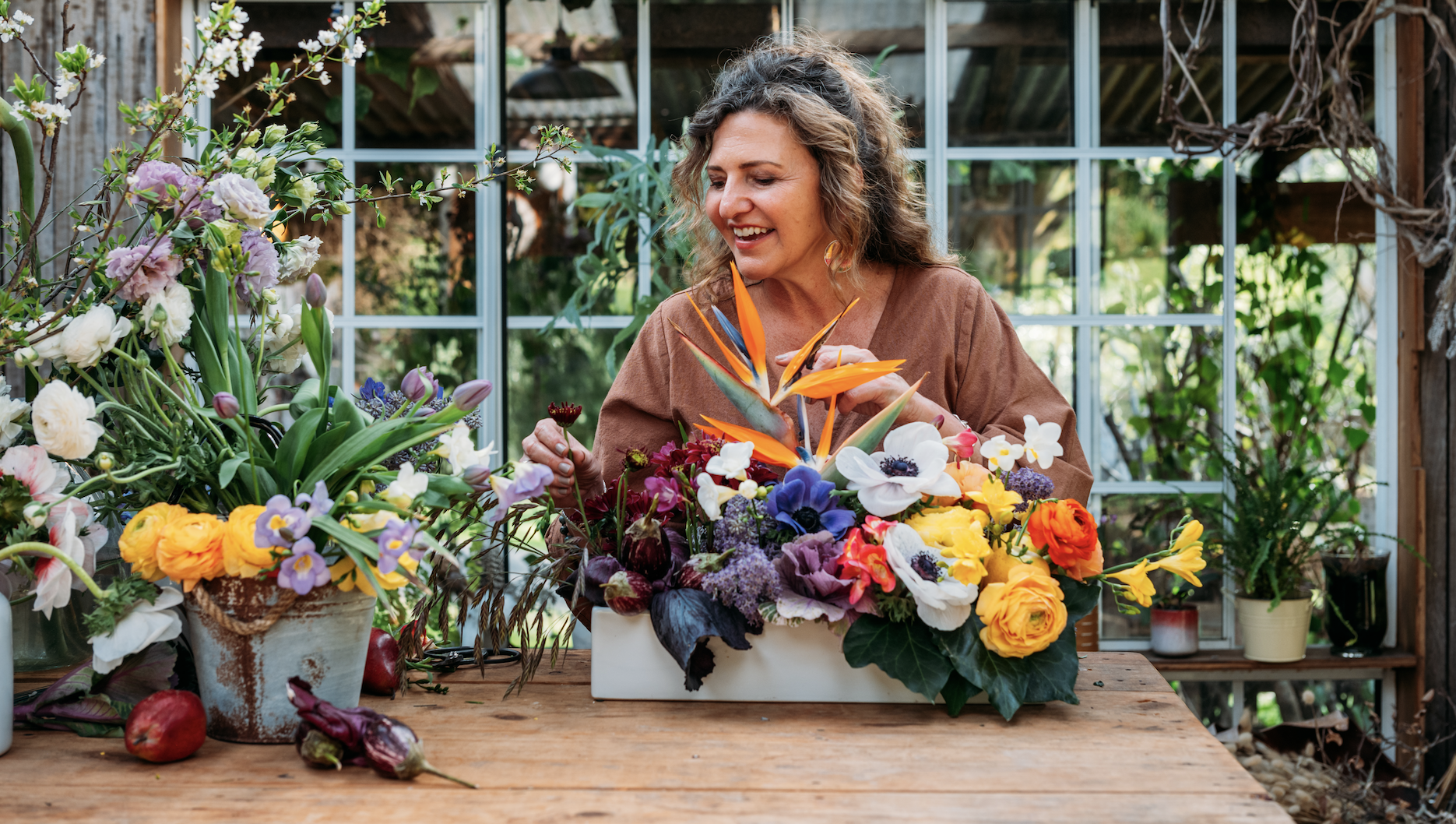

COVID has had a huge impact on florists all over the world. What are you currently up to?
Initially, my business was predominately face-to-face through workshops and consulting, with a few wedding and events. In 2020, like everyone, I suddenly found myself with an empty calendar. This gave me the time and space to revisit an idea I had many years before: to create an online platform and community, dedicated to floral design, education, business support and coaching. I was aware this resource didn’t exist in our industry, but I knew it could add such value.
My membership officially launched in September 2020, Offering beautifully filmed tutorials for floral professionals, creatives and emerging florists. The tutorials are complimented by comprehensive design notes, resources, a dedicated online group and monthly coaching sessions and interviews.
The Ivy Institute, now encompasses my personalised mentoring programs, workshops and retreats, an online store and finally the membership community The Greenhouse.
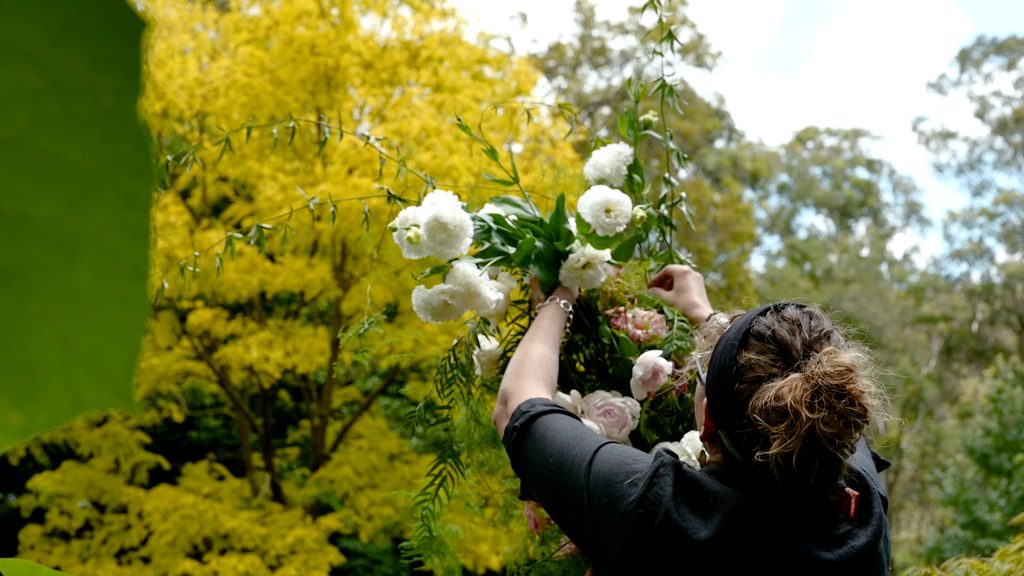
What part of the job brings you the most satisfaction/joy/inspiration?
I guess the underlying inspiration always has been the botanicals. Not just the flowers but seeing the beauty in nature as a whole: the seasonality and cycle of nature and welcoming favourites for such brief moments before the next come along. I’m forever fascinated. These days I am also greatly rewarded by helping others find their place in this wonderful industry and supporting them to explore a career in the most respectful and earth-friendly way possible – whether in their own business or finding design for the first time.
Biggest career highlights?
I have had multiple highlights in my 30 years in the trade. One was opening my retail shop at 23 with a clear idea of what I wanted to create and just going for it. But I would have to say to that creating my online membership has been the biggest highlight. This has been a huge project – to create a platform of inspiration, support and community and to have some small part to play in helping the industry to become more earth conscious. Those light bulb moments – when students and fellow florists realise there is another way to design – opens up so much creative freedom and respect for our medium. Also, empowering women to create a successful business on their own terms is really what buzzes me up.
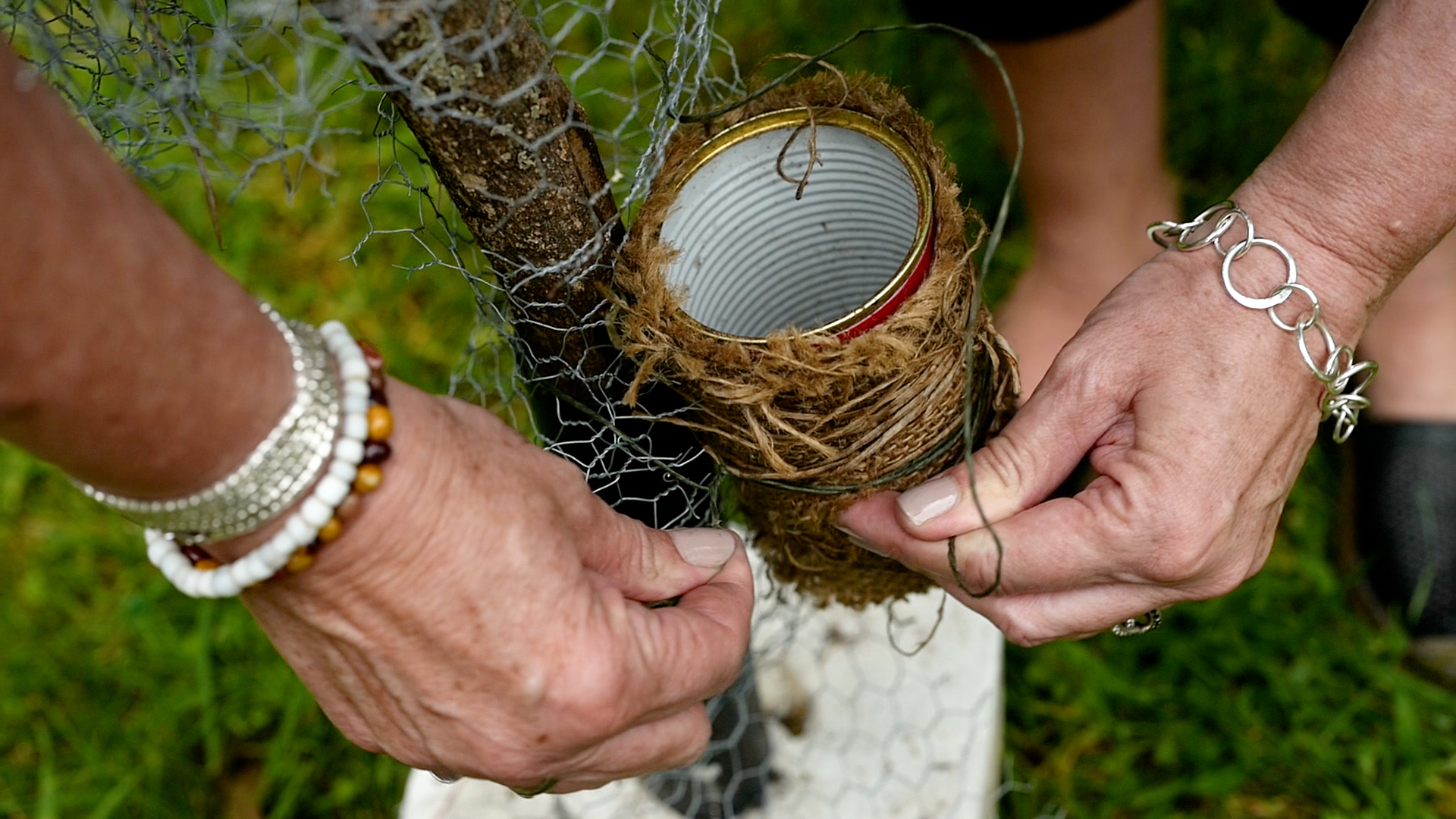
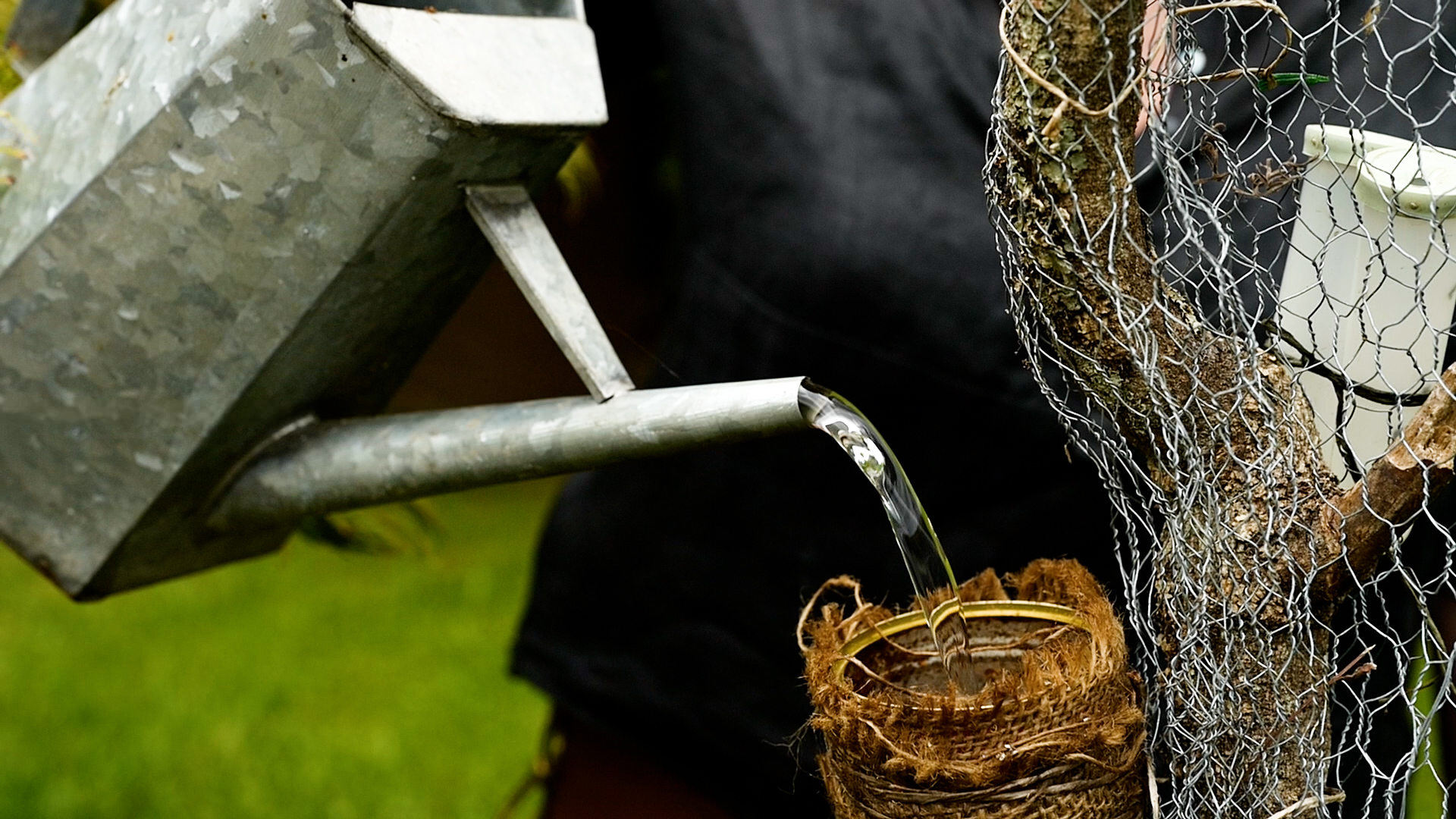

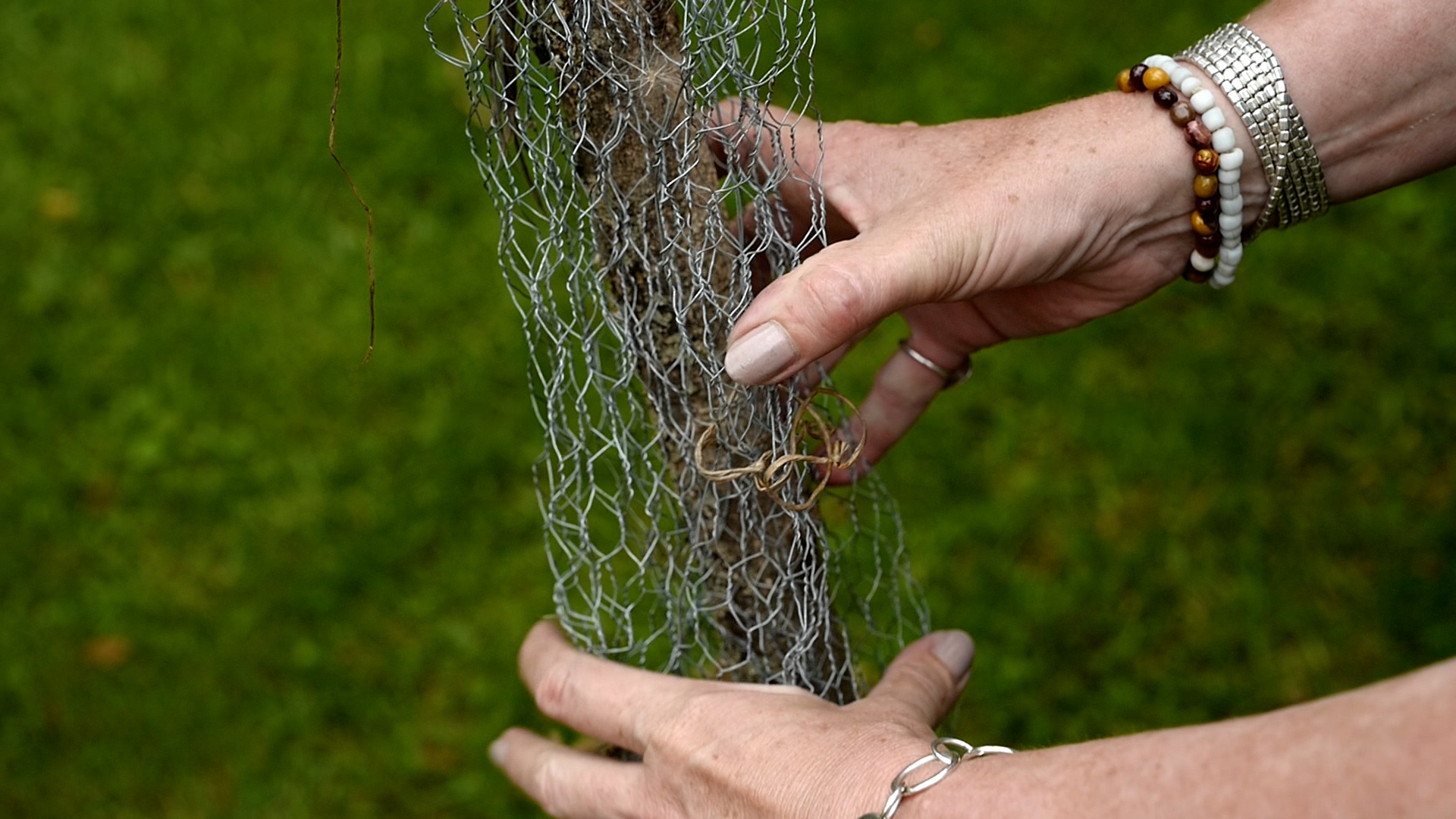
Greatest strengths?
Probably my ability to empathise with my clients and educate/mentor in a way that is approachable, inspiring and supportive.
Social media has had a huge impact on floristry – your thoughts?
When used as a marketing and networking tool, social media can be a really positive thing. For me, the connection I’ve made with other creatives has been fabulous, both personally and for business opportunities. I see negatives in trend-based design that confuses the public and influences new florists to the industry.
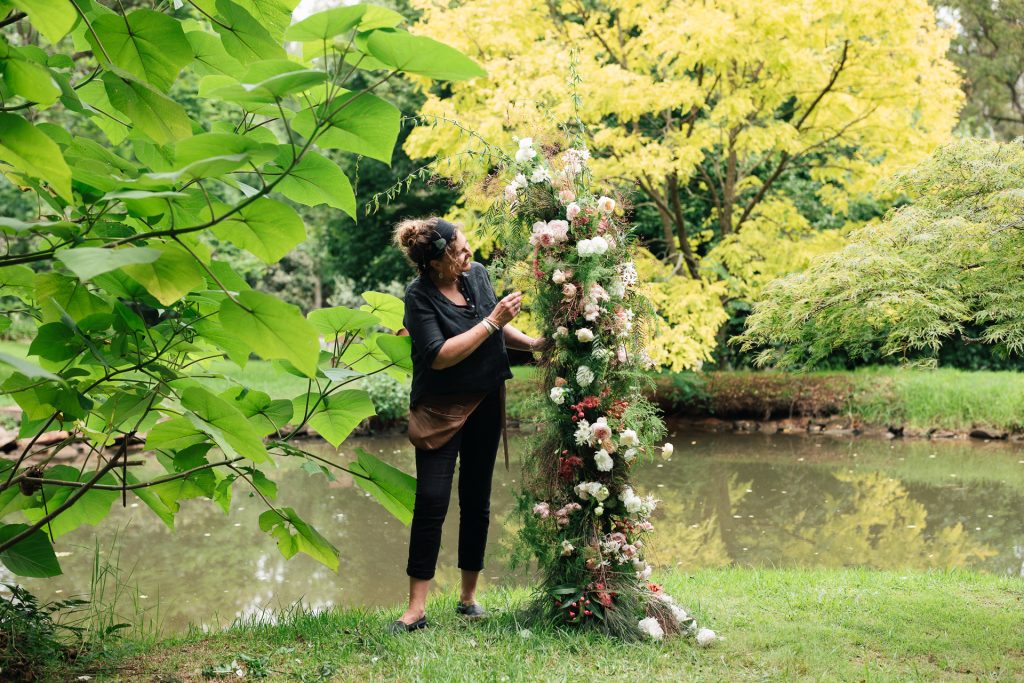
What do you respect in other florists?
Their curiosity, innovation, respect for the material they are using and their impact on the environment as they create. I really admire someone who is brave in their choices and thinks creatively.
What do you look for in employees when hiring?
A positive attitude, above all. I spent many years in formal training, and I do feel this pathway is perfect for some, especially younger florists without life experience. But for me, I don’t feel a certain type of qualification is essential. A keen sense to learn, fabulous social and customer skills and again, a good attitude, is important to me when I am employing.
The word ‘sustainability’ in floristry is getting a good run – what does sustainability mean to you in relation to your business practice?
It’s THE ONLY way forward. Running my business as mindfully as I can for the wellness of the planet. Being honest with myself and making it a choice to choose ethics over convenience whenever I can. Understanding that being sustainable is a process that we are all in different stages of and also knowing I have a responsibility to share and educate to have a positive impact on the industry and the designers within it.
What is in your tool box?
· Bird wire
· Bind wire
· My snips and secateurs that I bought in japan
· Leather toolbelt
· Hemp string
What attitudes do you think need to change – for both florists and consumers – taking into consideration the SFN principles?
FLORISTS: Designing by default with a ‘that’s the way it’s always been done ‘ attitude. We are a creative industry and I often find it frustrating to see many designing in the same way, with the same flowers, for years, with no desire to be curious and creative. I would love to see more of an ‘ethics over convenience’ mindset.
CUSTOMERS: The assumption that all flowers are natural needs to be addressed. There needs to be education so that the same mindset they have for food and fast fashion can be applied to flowers. Customers need to be curious about where their flowers are from, how are they grown and how they should dispose of them. An improved understanding of the circular economy would help – and that has to ultimately come from us the florists.
